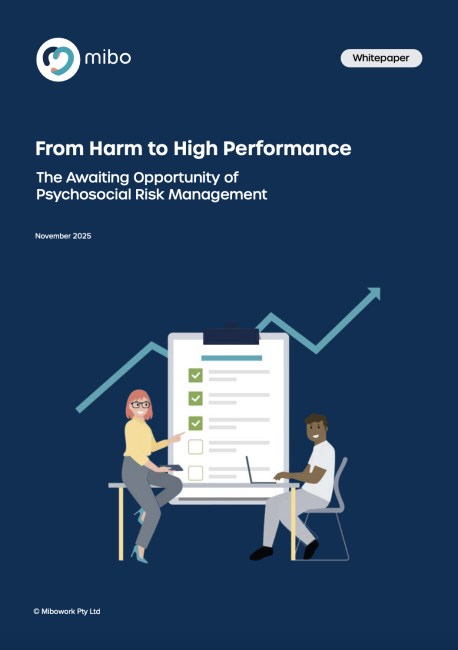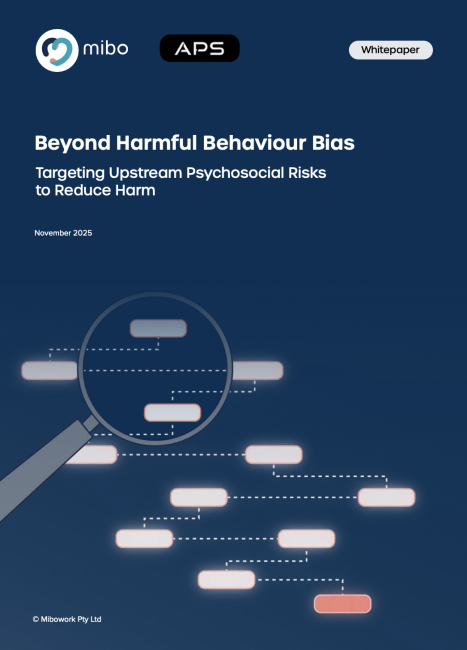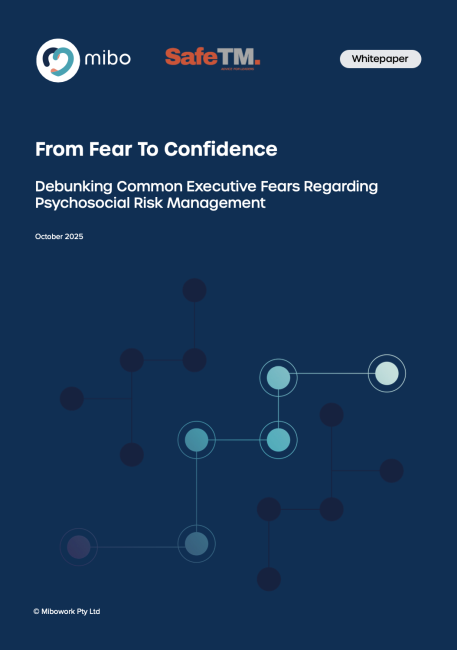Should Psychological Safety Have a Seat at the Psychosocial Risk Assessment table?

Featured

3 Things Organisations Can Learn from High Performance Sport

4 Keys to a Successful Psychosocial Risk Management Journey…

How To Turn Your Psychosocial Risk Learnings into Timely and Convenient Action
I’ve heard widely varying opinions regarding the relationship between psychological safety and psychosocial safety.
At one end of the spectrum is the view they are two distinct, unrelated constructs contributing to different aspects of the work experience…and therefore should be assessed separately. On the other end, some seem to be assessing psychological safety with the belief that this meets psychosocial risk assessment requirements (and in some cases that psychological safety is psychosocial safety).
Here’s my current understanding…
Clearly, psychological safety is not psychosocial safety. And assessing psychological safety is not included in traditional views or assessments of psychosocial safety. But they are related…
Psychological safety is one of many work factors that contributes to the overall psychosocial climate. With a key feature being the ability to communicate with colleagues and managers openly and honestly, psychological safety plays some small part in overarching psychosocial safety.
While low psychological safety may typically cause less stress than other powerful psychosocial factors like extreme work demands or poor manager support, its importance is that it likely both contributes to staff perceptions of recognised psychosocial factors, and is linked to previous experiences of inappropriate workplace behaviours. So of course psychological safety influences an individual’s psychological and social health to some degree…
But where do we draw the line in what should be included in a psychosocial risk assessment? I’m sure there are more worthy contenders that could warrant inclusion.
In my view, psychological safety should be included as this factor plays a uniquely crucial role in any psychosocial risk assessment…
And that is, if an organisation or team doesn’t have a healthy level of psychological safety, it would seem impossible for staff to report honestly regarding the status of other psychosocial factors for fear of interpersonal consequences. While this risk could be avoided or reduced by using an anonymous quantitative survey, a successful risk assessment also needs to be followed up with staff consultation exploring root causes of issues and discussion of potential control measures.
With this in mind, at Mibo we include psychological safety as one of our core assessed psychosocial factors. And our recommendation is when psychological safety is reported as a risk, it should become a top priority for urgent control measure implementation so other factors (which may be causing greater risk) can be addressed more accurately and successfully.
If you’d like to learn more about our unique approach to psychosocial risk management reach out today to schedule a call 🙂




